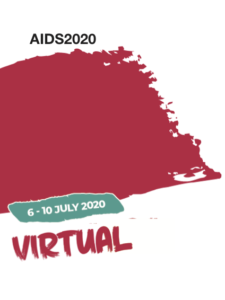AIDS 2020 online: introduction
22 July 2020. Related: Conference reports, Conference index, World AIDS 23 Virtual 2020.
This year the largest HIV conference had the challenge to turn an international conference, usually attended by 20,000 delegates, into a meeting that would be entirely accessed online.
The meetings are organised every two years by the International AIDS Society and if done successfully, the virtual conference could involve and reach far more people globally than could ever attend in person.
Although the scientific programme is already online, access is restricted to delegates until the conference ends on 10 July 2020. After this, all material should then become open access.
Free access is already available to some sections, for example the virtual exhibitions linked to the Global Village, although this still requires one-time free registration. Some of these projects adapt to a virtual format but they certainly don’t compare to direct interactions with real people.
Based on the experience from AIDS 2020, face-to-face conferences are not likely to be replaced by virtual ones, but they will have to develop into better models, as COVID-19 is likely to continue to limit travel, at least for the rest of this year.
Whether due to teething problems or lack of testing, the AIDS 2020 website was difficult to access and the programme was and is still difficult to follow. The serious loss will be the scientific advances that are not yet reported and for the lack of critical scrutiny given to the studies that are reported.
However, now that the conference and related meetings have finished, there might be the potential for better online access afterwards. Technically, if all presentations were presented virtually, a larger percentage than usually will remain available online, and these will now be open access.
The articles below in this issue of HTB cover the main breaking news, but we will continue to report other studies in future issues.
AIDS 2020 reports in this issue of HTB
Links to new reports will be posted below.
- AIDS2020: Navigating the website
- Neural tube defects in two of 1000 conception exposures with dolutergravir:
- Case report of short-term HIV remission from adding oral nicotinamide to intensified ART
- New HIV remission case report at AIDS 2020: full report
- Neural tube defects in two of 1000 conception exposures with dolutergravir: reassuring update from Tsepamo study
- Dolutegravir associated with weight gain in African ART programmes: findings from AFRICOS
- Case report of short-term HIV remission from adding oral nicotinamide to intensified ART
This report was first posted on 8 July 2020.


 Simon Collins, HIV i-Base
Simon Collins, HIV i-Base